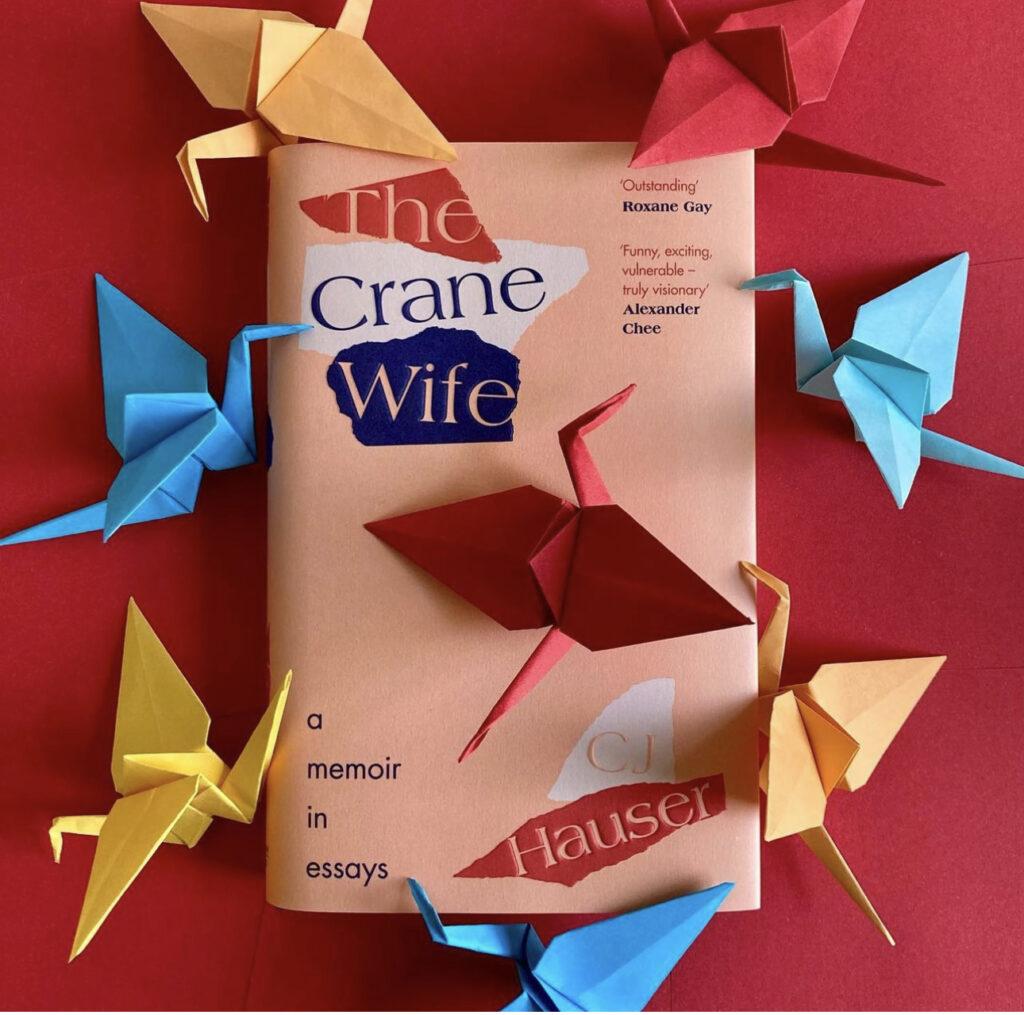Georgetown graduate and writer CJ Hauser (CAS ’06) advised students that expressing vulnerability in creative nonfiction writing makes pieces more authentic in an Oct. 10 talk.
At the event, Hauser, an associate professor of English at Colgate University, discussed their memoir, The Crane Wife, and held a Question and Answer session with students. The Crane Wife is a collection of essays, built around an essay also titled “The Crane Wife,” which went viral after its publication in 2019.
During the event, Hauser said revisiting and recollecting memories — including painful ones — was significant to them, because it enhanced their understanding of the important moments of their life. They read an excerpt from The Crane Wife about struggling with their sexual orientation while at Georgetown and unintentionally hurting their former boyfriend by having romantic feelings for a girl.
Hauser said they had repeatedly contemplated this experience before deciding to write about it.
“I think — and especially for me with nonfiction — the places that I keep going to mentally again and again, which I’ve decided to call ‘time travel,’ allow me to find something to write about,” Hauser said at the event. “I don’t always know what it is or why, but I start mucking around in the content and I think that is the nature of it for me. It’s so powerful to openly write about these memories, especially shameful and self-disappointing ones.”
Hauser shared their experience of including their personal thoughts and internal conflicts in their writing, a type of vulnerability they said was most visible in one essay about a robot convention, titled “The Lady and the Lamp.” Hauser’s obsession with robots and participation in a government-sponsored robotic trial had inspired them to write the essay.
“I tried to write that essay for years but couldn’t quite figure out how because I kept trying to have some sort of authority about it and show that I knew what everything meant. That’s not what I have to offer,” Hauser said.
“I needed to figure out why I was obsessed, my feelings and my understandings after seeing the convention,” Hauser added. “I think building the problem into the process of writing an essay is so important because it lets the reader feel like they’re really going along for an active process with you, and that kind of vulnerability is necessary.”
Hauser said revealing secrets through writing is another type of vulnerability.
“I come from a sort of dramatic family with a lot of secret-keeping, so for me, the idea of not keeping secrets was great; it felt safe, good and reassuring,” Hauser said. “But there’s a line between what should and shouldn’t be spoken out loud. Just because you’re writing about some vulnerable things doesn’t mean you have to tell people everything.”
Hauser also shared their insights about the relationship between individuals and the broader context.
“We’re writing about the self but we’re also always writing about the wider world,” Hauser said. “I don’t live in a vacuum; I live in a world with the X-Files, SNL, Rebecca and Shirley Jackson. I don’t know how to write about myself without these obsessions.”

During the Q&A session, Hauser said creative nonfiction is not always authentic because there are discrepancies between the perspectives of the narrator and character.
“There’s the narrator and character,” Hauser said. “There’s the person who’s telling the story of these essays and the character of CJ in those essays. The difference between narrator CJ and character CJ is that character CJ does not know what is going on, but narrator CJ does. I think it’s the difference between those two spaces that make an essay interesting and it honors both experiences.”
Hauser said it is important to take the time to write about suffering and pain because it enables us to thoroughly reflect on these experiences.
“I normally understand the most things after the pain, when I’m able to look at it in a new way,” Hauser said. “I would never recommend courting suffering, but writing about the things that feel really true to you, whether it’s painful or joyful, is definitely vital. It seldom works for me when I’m in the thick of it, though; it’s usually after.”
Hauser encouraged students to be open and vulnerable in their writing.
“Don’t be afraid to write about anything that shapes who you are and helps you express yourself,” Hauser said.














